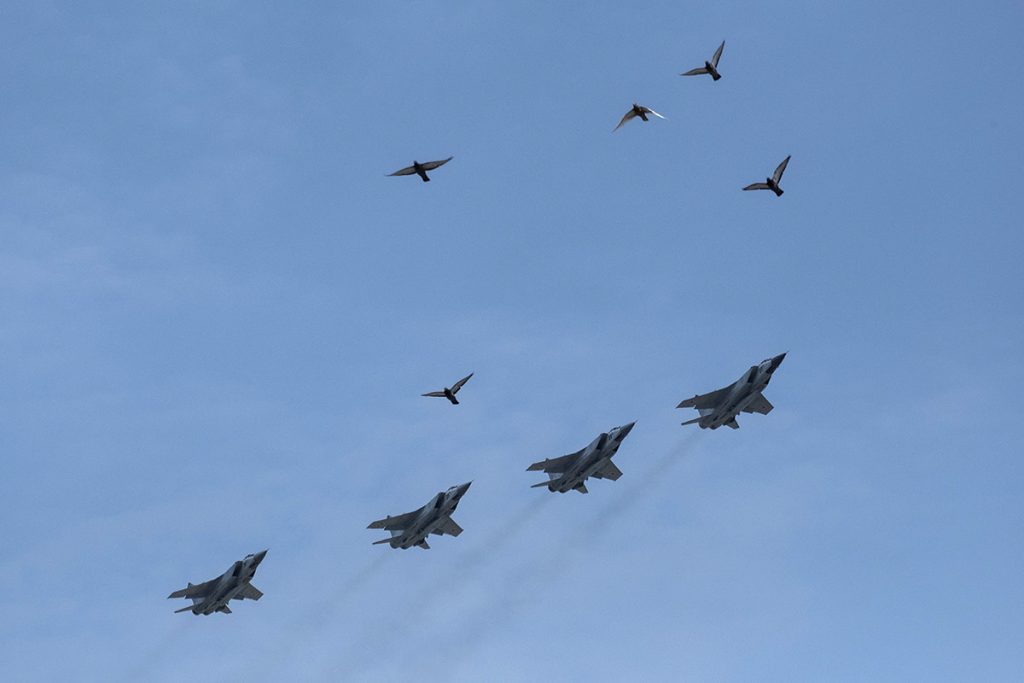
The photo project ‘Our Future is Our Past’. Russia: Chronicles of 2022
Pavel Mirny
The ideological foundations of the Russian political regime, long before the war in Ukraine, were built around an official historical narrative, referring to the «achievements of the past». Idealized images of Peter the Great or the first man in space were and remain comprehensible to anyone living in Russia. No alternative discourses of solidarity have been created by the authorities in the post-Soviet decades.
After 24 February 2022, the political regime has used the memory of the most important event of the past — the victory in the Great Patriotic War (WWII) — even more insistently to mobilize the population to support the war in Ukraine. Within the official discourse of «special operations», the events of 80 years ago are deliberately conflated with modern times, and aggression against neighbors becomes a continuation of the war against the same fascism.
Tour guides working in state museums of the Second World War are increasingly introducing statements about the aims and tasks of the «special operation» into their programs. The wartime Victory Parade becomes a demonstration of the regime’s militarist aspirations. Privatized by the authorities, the «Immortal Regiment», portraits of veterans of the Great Patriotic War mingled with those killed in the new war in Ukraine, merge the past with the present in a very straightforward way.
Timed to ‘Victory Day’ exhibitions dedicated to the ruined Donbas (Palace Square in St Petersburg) or plaster fragments of the Savur-Mohyla memorial from the Donetsk region in the center of the capital at Moscow Day celebrations have become a mandatory part of official events in 2022. Military forums, highlighting advanced technologies of destruction and counter-insurgency have filled the state’s exhibition grounds and cultural centers. The letters «Z» and «V» have taken on an ominous meaning, along with the banners «Hero of Russia», and have become common symbols of urban and public space.
State censorship forbids the very use of the word «war». And the very level of freedom of speech in 2022 has declined more than at any time in the post-Soviet decades. Journalism in Russia has become a hostage to war. The main topic, the war in Ukraine and its consequences, cannot be discussed in any open and public way. New repressive laws on fakes and discrediting the Russian army deprive journalists of the chance to openly discuss what is happening in Ukraine.
Before the war, the state and society coexisted according to an unspoken agreement — «we» pay pensions, and the minimum wage, and stay out of your private life, while you pretend to vote for us in elections. And everyone lives his or her own life. After the declaration of mobilization at the end of September — this contract was finally broken. The state began to interfere in every family’s life. If the invasion of Ukraine was the point of no return in the Kremlin’s foreign policy, the mobilization was the point of no return in the relationship between state and society. Tales of the fight against fascism and new victories cannot hide the rapidly growing cemeteries, with Russian servicemen buried in them.
Having lived through perhaps the most dramatic year in the history of post-Soviet Russia, one comes to the conclusion that the vast country is now living according to the principle «our future is our past».